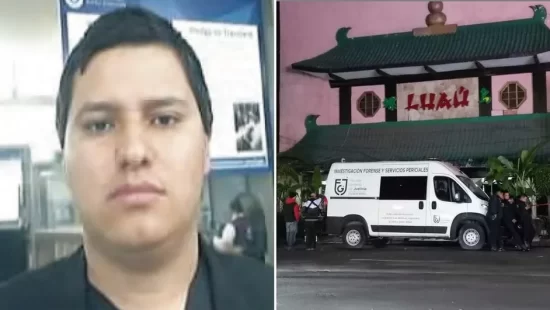President-elect Donald Trump has promised to end birthright citizenship as soon as he gets into office to make good on campaign promises aiming to restrict immigration and redefining what it means to be American.
But any efforts to halt the policy would face steep legal hurdles.
Birthright citizenship means anyone born in the United States automatically becomes an American citizen. It’s been in place for decades and applies to children born to someone in the country illegally or in the U.S. on a tourist or student visa who plans to return to their home country.
It’s not the practice of every country, and Trump and his supporters have argued that the system is being abused and that there should be tougher standards for becoming an American citizen.
But others say this is a right enshrined in the 14th Amendment to the Constitution, it would be extremely difficult to overturn and even if it’s possible, it’s a bad idea.
During an interview Sunday on NBC’s “Meet the Press” Trump said he “absolutely” planned to halt birthright citizenship once in office.
In the aftermath of the Civil War, Congress ratified the 14th Amendment in July 1868. That amendment assured citizenship for all, including Black people.
“All persons born or naturalized in the United States and subject to the jurisdiction thereof, are citizens of the United States and of the State wherein they reside,” the 14th Amendment says. “No State shall make or enforce any law which shall abridge the privileges or immunities of citizens of the United States.”
But the 14th Amendment didn’t always translate to everyone being afforded birthright citizenship. For example, it wasn’t until 1924 that Congress finally granted citizenship to all Native Americans born in the U.S.
A key case in the history of birthright citizenship came in 1898, when the U.S. Supreme Court ruled that Wong Kim Ark, born in San Francisco to Chinese immigrants, was a U.S. citizen because he was born in the states. The federal government had tried to deny him reentry into the county after a trip abroad on grounds he wasn’t a citizen under the Chinese Exclusion Act.
But some have argued that the 1898 case clearly applied to children born of parents who are both legal immigrants to America but that it’s less clear whether it applies to children born to parents without legal status or, for example, who come for a short-term like a tourist visa.
“That is the leading case on this. In fact, it’s the only case on this,” said Andrew Arthur, a fellow at the Center for Immigration Studies, which supports immigration restrictions. “It’s a lot more of an open legal question than most people think.”
Some proponents of immigration restrictions have argued the words “subject to the jurisdiction thereof” in the 14th Amendment allows the U.S. to deny citizenship to babies born to those in the country illegally. Trump himself used that language in his 2023 announcement that he would aim to end birthright citizenship if reelected.
Mass deportations? The courts could face delays and may take until 2040 at the current pace








